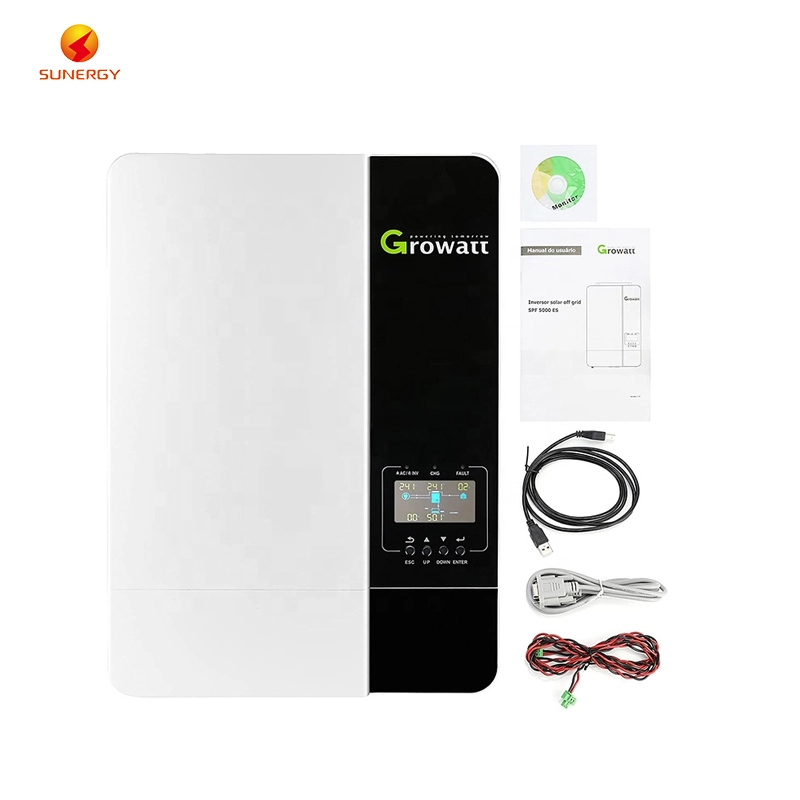As the demand for renewable energy sources grows, solar power continues to gain traction as a reliable and sustainable solution. A crucial component of any solar power system is the solar inverter. In this article, we will delve into what solar inverters are, explore the different types available, and highlight their essential functions and importance in harnessing solar energy.
What is a Solar Inverter?
A solar inverter is a device that converts the direct current (DC) generated by solar panels into alternating current (AC), which is the form of electricity used by most household appliances and fed into the electrical grid. This conversion is vital because while solar panels produce DC electricity, the grid and most home systems operate on AC electricity.

Types of Solar Inverters
There are three main types of solar inverters, each with its unique advantages:
- String Inverters: These are the most common type of solar inverter. They connect a series of solar panels (a "string") and convert the DC electricity from all panels into AC. While they are cost-effective and easy to install, their performance can be affected by shading or differences in panel performance within the string.
- Micro Inverters: Unlike string inverters, micro inverters are installed on each individual solar panel. This allows for optimal performance since each panel operates independently. If one panel is shaded or malfunctions, the others continue to generate electricity efficiently. This makes micro inverters ideal for installations with varying panel orientations or shading.
- Central Inverters: These are used in large-scale solar power plants. Central inverters are similar to string inverters but handle larger groups of panels, providing a centralized solution for converting DC to AC. They are efficient and can manage substantial amounts of power, making them suitable for commercial and utility-scale projects.
Basic Functions and Importance in a Solar Power System
Solar inverters perform several critical functions:
- DC to AC Conversion: The primary role of a solar inverter is to convert the DC electricity produced by solar panels into AC electricity for use in homes and businesses.
- Maximum Power Point Tracking (MPPT): Solar inverters utilize MPPT technology to optimize the power output from solar panels by adjusting the electrical load, ensuring that the system operates at peak efficiency regardless of changes in sunlight conditions.
- Monitoring and Communication: Many modern inverters come equipped with monitoring capabilities, allowing users to track energy production and system performance in real-time. This data can help identify issues and optimize energy use.
- Grid Connection and Safety: Inverters facilitate the connection to the electrical grid, ensuring compliance with safety standards. They can disconnect the solar system from the grid during outages or maintenance, protecting both the system and utility workers.
In summary, solar inverters are integral to the effectiveness of solar power systems. They not only convert and optimize energy but also ensure safety and efficiency. Understanding the types and functions of solar inverters can help homeowners and businesses make informed decisions about their solar energy investments, ultimately contributing to a cleaner, more sustainable future.

Meet the Author
Chinaland Solar Energy Co., Ltd. (SUNERGY)
Established in 2008, Chinaland Solar Energy Co., Ltd. (SUNERGY) stands as a beacon of innovation and excellence in the realm of solar energy. As a high-tech enterprise, SUNERGY is dedicated to the comprehensive advancement of solar technology, spanning research and development, production, sales, and service of solar modules and photovoltaic power generation systems.
With a steadfast commitment to quality and sustainability, SUNERGY has emerged as a leading brand in the photovoltaic industry. Our reputation for excellence is built upon a foundation of industry-leading module R&D capabilities and manufacturing levels, ensuring that every product deliver is of the highest standard.
As advocates for a greener, more sustainable future, the experts at SUNERGY are passionate about empowering individuals and communities to harness the power of the sun. Through their expertise and dedication, they continue to pave the way for a brighter tomorrow, one solar panel at a time.
